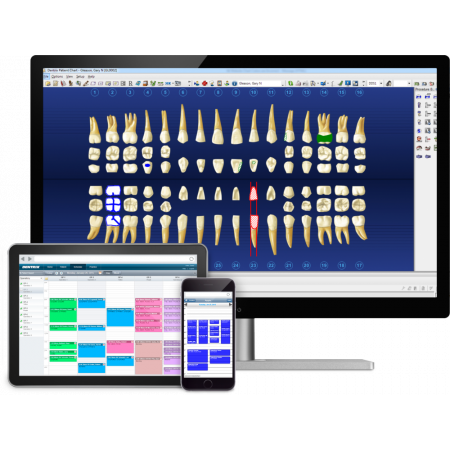In the ever-evolving field of dentistry, staying updated and informed is not just a choice; it’s a necessity. Dental professionals, including dentists, dental hygienists, and dental assistants, are constantly faced with new techniques, technologies, and best practices. To provide the best possible care to their patients, it’s imperative for dental practitioners to engage in continuous learning through dental continuing education.

Why Dental Continuing Education Matters
Dentistry is no longer limited to just filling cavities and pulling teeth. The dental landscape has undergone a remarkable transformation over the years, with advancements in diagnostic tools, treatment options, and patient care techniques. Staying stagnant in this rapidly changing environment is not an option, as it can lead to outdated practices that compromise patient outcomes.
Here’s why dental continuing education is of paramount importance:
1. Keeping Up with Technological Advancements
The dental field is no stranger to technological advancements. From digital radiography to 3D printing of dental prosthetics, technology has revolutionized the way dentists diagnose and treat oral health issues. Attending continuing education courses allows dental professionals to stay current with these technological innovations, ensuring they can provide the most advanced and effective treatments to their patients.
2. Enhancing Clinical Skills
Clinical skills are the backbone of dentistry. Dental Continuing Education courses offer hands-on training and opportunities to refine clinical skills. Whether it’s mastering a new surgical technique or perfecting the art of cosmetic dentistry, these courses empower dental professionals to excel in their respective specialties.
3. Navigating Regulatory Changes
Dental regulations and guidelines are subject to change. Staying compliant with these regulations is vital for the practice’s integrity and the safety of patients. Dental continuing education keeps practitioners informed about the latest regulatory changes and ensures they maintain the highest standards of patient care and safety.
4. Elevating Patient Care
Ultimately, the primary beneficiary of dental continuing education is the patient. Dental professionals who invest in ongoing learning can offer more comprehensive and advanced treatment options, resulting in improved patient outcomes, increased patient satisfaction, and ultimately, a thriving practice.
Types of Dental Continuing Education
Dental continuing education encompasses a wide range of topics and formats. Here are some popular options:
1. Live Workshops and Seminars
Live workshops and seminars offer dental professionals the chance to learn from experts in a hands-on environment. These events cover topics such as the latest restorative techniques, implant dentistry, and practice management strategies.
2. Online Courses
In the digital age, online courses have become a convenient way to access dental continuing education. These courses can be completed at the practitioner’s own pace and cover a wide range of subjects, from infection control to the latest advancements in dental technology.
3. Dental Conferences
Dental conferences bring together experts and thought leaders from various specialties. Attending these conferences allows dental professionals to immerse themselves in the latest trends and research shaping the field of dentistry.
Choosing the Right Dental Continuing Education
Selecting the right dental continuing education program is crucial to maximize the benefits. Here are some factors to consider:
1. Relevance to Your Practice
Choose courses that align with your practice’s specialty and your personal career goals. If you’re a periodontist, courses on implantology might be more relevant than pediatric dentistry.
2. Accreditation
Ensure that the courses you choose are accredited by reputable organizations. Accredited courses meet specific quality standards and are more likely to provide valuable knowledge.
3. Reviews and Recommendations
Seek out reviews and recommendations from peers who have taken the same courses. Their insights can help you make informed decisions about which courses to enroll in.
4. Cost and Accessibility
Consider your budget and the course location. Online courses may be more cost-effective and accessible, while live workshops may require travel and additional expenses.
Conclusion
Dental continuing education is not just a professional obligation; it’s a commitment to excellence in patient care. The ever-evolving field of dentistry demands that practitioners stay ahead of the curve through continuous learning. By choosing the right courses and embracing ongoing education, dental professionals can provide the highest quality care to their patients, ensuring healthier smiles and lasting oral health.
